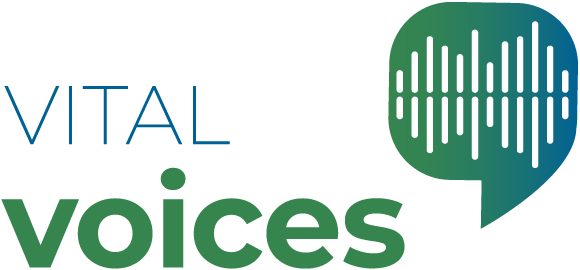Sana’s Story
Name: Sana
Gender: Female
Age: 71
Who is Sana?
Sana lives with her daughter and grandchild in Melbourne, Australia. She describes her ethnic background as ‘Indian’: like both her parents, Sana was born in India. Sana is retired and relies on her daughter for income. She says that she was ‘very happy’ to be cured of hepatitis C.
Brief Outline:
Sana was first diagnosed with a ‘blood infection’ in India in about 2008, before being diagnosed with hepatitis C in Australia in 2019. She had heard mixed information about the new treatment from friends and family overseas, and was concerned about her health and whether the virus was curable. With her daughter’s support, she was cured of hepatitis C with the new treatment in 2019. For her, completing treatment was ‘very easy’, and had the added benefit of positive effects on her relationship with her daughter, who accompanied her to all appointments and supported her during treatment.
(Note: the interview used to develop this narrative was conducted with the assistance of a translator)
Thinking about how she felt about her diagnosis, Sana says she was ‘worried because she [had] heard from other people […that] it’s very serious’. She was given confusing information about the treatment from friends in India and was ‘frightened’ because she had heard it couldn’t be cured at her age and that she might die. However, after speaking with her son and some other friends, she became aware that the new treatment was ‘very easy’ and that she had nothing to worry about.
Sana’s daughter accompanied her to all her medical appointments, looked online for information about the virus and available treatments, and helped translate the health information and advice she received. According to Sana, their ‘relationship [got…] stronger’, because she became increasingly aware of how trustworthy her daughter was. As she puts it, it was ‘good to have […] someone who can understand you and go through the journey with you’. She also reflects that treatment could have been ‘very hard’ if she’d ‘had to deal [with it] by herself’.
Sana started treatment immediately after being diagnosed, and says she was ‘very happy with it and finished within three months’. While she says she experienced some mild symptoms (‘itchiness’), she found treatment ‘very easy’ overall. Her daughter put reminders on her phone to take the medication and also reminded her during the day. Sana recounts that ‘every person during the treatment was fantastic’ and made sure she understood the health information being given. Sana explains that, ‘They [the medical staff] speak nicely,’ and that ‘when they know that I can’t understand English, they speak, like, little bit slowly and just [emphasise] the targeted words and, with a smile, facial expressions, and they give [me] full respect.’
Sana’s was ‘happy’ to find out that the treatment had cured her of hepatitis C. Now, she says, she can focus on managing other health issues such as her diabetes.
Sana (F, 71, experience with new treatment [DAAs]) explains that she may have acquired hepatitis C while still living in India, during a medical procedure for an arm injury.
[I had] to do some checks and everything, medical things, for the visa purposes […and] went to the local doctor there to just get all the tests done […] They said, ‘You’ve got a little infection in your blood’, but then they didn’t [explain] what sort of infection. They said, ‘Don’t worry about it, it’s okay’, because, you know, in India, sometimes they are like that. Yeah, doctor to doctor, it depends. Yeah. Some [things] they take serious[ly], some they don’t take serious[ly] […] One time [I had] like a little accident where [my] arm just got squished fully […] luck[il]y it wasn’t the bone. So, it’s just like the muscles and everything […and I] was hospitalised for nearly a month, I think. During that process, I had a blood transfusion and so many injections and everything, and we’re thinking [my family and I], like, maybe [I acquired hep C] from one of those injections or blood transfusions.
Thinking further than her immediate family, Sana (F, 71, experience with new treatment [DAAs]) says that she found speaking to other relatives reassuring.
I was worried with my age, because the information [I got from] different channels […meant] I felt like [hepatitis C’s] a big thing. I don’t know what’s going to happen with me – and also, you know, other myths, and all the information I was getting [was confusing]. Some people say you just die with it, you know, [or] it depends on which stage you are [at… or] it can’t be curable, and all that. So, it gives, like, a lot of mixed feelings […] I kept thinking, ‘What’s going to happen, and is it going to really get treated as [the doctor is] saying?’ Yeah. I told all the close relatives […overseas]; it was good to speak to the relatives. They said, ‘Yeah, you will be all right’ and [gave me] assurance. ‘It’s not like a disease that doesn’t have treatment. So, you will get the treatment and it should be all good’.
Sana (F, 71, experience with new treatment [DAAs]) says that the health professionals managing her treatment were ‘fantastic’ and very respectful.
Every person during the treatment was fantastic […] Even the nurses […] the ones that work under a specialist, they are so helpful. […] They were very helpful and […] they speak nicely. When they know that I can’t understand English, they speak, like, [a] little bit slowly and just on the targeted words and with a smile, facial expressions, and they give [me…] full respect.

